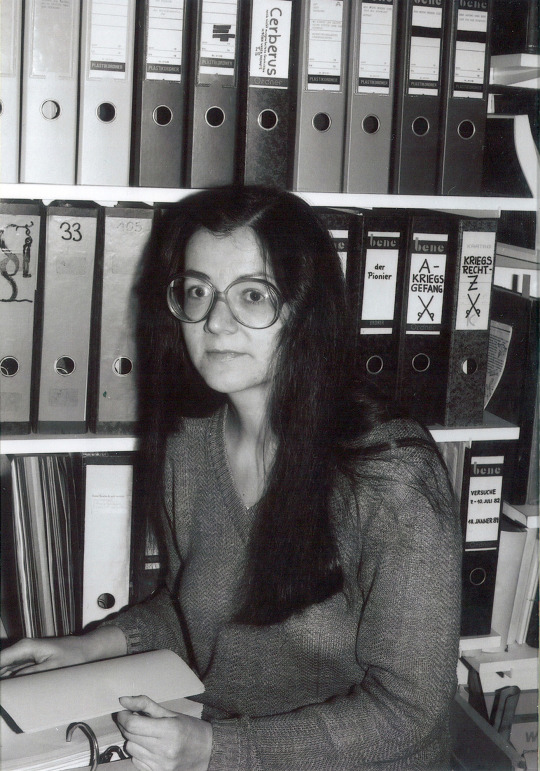
Kate Zambreno and Adrian Nathan West in Conversation on Marianne Fritz
When initially encountering the writing of the Austrian novelist Marianne Fritz, whose work is now being introduced to the English-language reading public through her first novel, The Weight of Things, published this October by Dorothy, a publishing project, and translated by Adrian Nathan West, I was first compelled by a dichotomy of scale. On the one hand, The Weight of Things, which won the Robert Walser Prize in 1978, when Fritz was 30, is a short, beautifully vicious, minimal work, albeit taking on heavy themes, a satire of a provincial post-war Austrian family, reminiscent of the works of Elfriede Jelinek.
But after The Weight of Things, Fritz continued this quest to rewrite nationalist fairytales with an epic 10,000 page series she called “The Fortress” (or Festung), each book more sprawling and complex than the last. These works, from her second novel, Das Kind der Gewalt und die Sterne der Romani (The Child of Violence and the Stars of the Romani), to Dessen Sprache du nicht versehst (Whose Language You Don’t Understand), which totalled 3,700 pages and was published in 12 volumes, won her some degree of infamy in Germany and Austria, which quickly devolved into disappearance. She died in 2007, leaving behind her last, most ambitious work, Naturgemäß, or Naturally, or In the Nature of Things, unfinished at around 6,000 pages.
I talked with Fritz’s translator, Adrian Nathan West, over Gchat about Fritz’s work, the mystery of her reception, some of her most famous supporters and detractors, labor and the novel, the cult of the outsider writer, and more.
—Kate Zambreno
I. FATUOUS VULGARITY
THE BELIEVER: When were you first introduced to the work of Marianne Fritz?
ADRIAN NATHAN WEST: I think in 2013, when I found a reference to her work in the footnotes to Sebald’s poems.
THE BELIEVER: The lines go, as you note in your Paris Review essay, “The exhausted eyes / of the writer the fingers / of one hand on the / keys of her machine.” Although in the poem Sebald doesn’t explicitly name her.
ANW: Exactly, but in the Sebald poem he writes, “einer Sprache die / du nicht verstehst” which is an unequivocal reference to Fritz’s book.
BLVR: Were you translating other Austrian writers at that time yet? (Josef Winkler, Jean Améry)?
ANW: I had translated two books by Winkler, When the Time Comes and Natura Morta. I had done Améry’s suicide notes,...
You have reached your article limit
Sign up for a digital subscription and continue reading all new issues, plus our entire archives, for just $1.50/month.
Already a subscriber? Sign in




